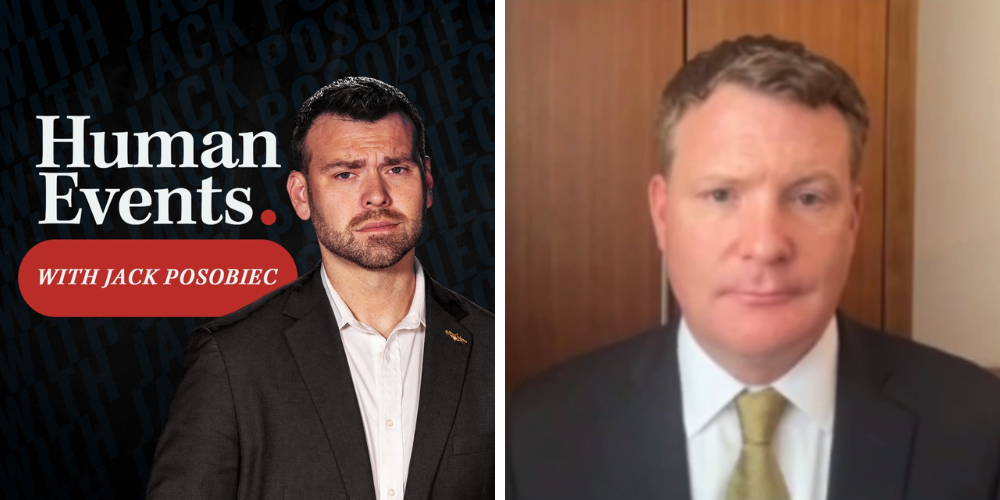I wasn’t going to write about taxes for a second week in a row, but then I read Treasury Secretary Paul O’Neill’s interview with the Financial Times, which troubled me in light of several other recent signals indicating that the Treasury may be heading in what I consider to be the wrong direction on tax reform.
It was good to hear O’Neill say that the Treasury is in the process of "cataloging all the ideas that have been advanced over the last 10 or 20 years about how one might restructure the (tax) system."
The bad news is it appears the Treasury may prematurely have whittled down the ideas it will submit to the president from the catalog. The Financial Times quoted the Treasury secretary saying the reforms that were most likely were the ones that were "minimally controversial and not very costly."
This comment sounds harmless enough, if somewhat timid, but it is worrisome when considered in the context of a Wall Street Journal report several weeks ago by Alan Murray in which there were hints that Treasury bureaucrats may be predisposed to "reform" the tax system with a scheme similar to the one proposed by Yale University law professor Michael Graetz.
Graetz’s proposal would add a 15 percent value added tax on top of the current income tax, making it not only "not very costly" in O’Neill’s terms but almost certainly also capable of generating vast new revenues to fuel the growth of government. The incidence of a VAT is so stealthy that few taxpayers would perceive or understand who is actually paying the tax.
Rather than addressing the fundamental flaws that plague our existing tax system, the Graetz plan would simply eliminate the income tax altogether for families earning less than $100,000, almost 90 percent of all current filers. This trick would minimize controversy among voters by the same old political stratagem of shifting an ever larger share of the income tax onto an ever smaller share of taxpayers.
Taxpayers earning more than $100,000 a year would be forced to pay the hated alternative minimum tax with a 25 percent rate. Such "simplicity," however, would come at the expense of imposing even heavier penalties on the chosen few who now would pay both a VAT and an unreformed income tax.
Ernest S. Christian and Gary Robbins, two former Treasury Department officials, offer a very attractive alternative, which they call the "five-easy-pieces" approach to tax reform. None of the components is strange or exotic, and the president doesn’t need to pore through a catalog of past recommendations; he already endorsed the five easy pieces right after the Waco economic summit last summer.
Christian and Robbins suggest a method of maintaining the American tradition of taxing income while lowering the exorbitantly high marginal tax rates that discourage work, penalize personal saving and depress business capital investment, which substantially depress productivity and wage gains.
Their approach also would eliminate the perverse aspects of the current tax code that greatly disadvantage American manufacturers and exporters. Consequently, the five-easy-pieces approach would also eliminate tax incentives for U.S. companies to move offshore.
The five incremental amendments to the current tax code that would begin the reformation process and simultaneously give the economy an immediate boost are:
1) lowering marginal rates (including capital gains tax rates);
2) eliminating the double tax on corporate earnings;
3) accelerating depreciation, ultimately to the point of 100 percent first-year expensing for business capital investment;
4) expanding the Roth IRA to all personal saving; and
5) excluding export and other foreign trade income of American companies from tax in much the same way that other countries already do in the world marketplace.
Some of the five easy pieces would probably have to be gradually phased in. However, in order to bring the benefits of fundamental tax reform immediately to economically distressed areas and territories - especially those areas and territories adversely affected by free-trade agreements - I would add a sixth easy piece to the mix: nationwide enterprise zones of choice that would give people at the bottom of the economic ladder and many state and local public officials a stake in tax reforms.
Let’s allow each state and territory to designate, consistent with specific federal guidelines, enterprise zones of choice within their jurisdictions in which individuals and businesses living and located within the zones would have the choice of being taxed under the current tax code or under the tax code as it would eventually exist with the five fundamental reforms fully phased in and fully implemented.
It would be relatively inexpensive, and not only would enterprise zones of choice give economically troubled areas a jump start economically, they would also provide nationwide laboratories of controlled experimentation - a proving ground - for fundamental tax reform.
Five easy pieces of tax reform, nationwide enterprise zones of choice, a president with a mandate and two whole years before the next election. Sounds like the makings of a powerful bipartisan package that will be good for America.




